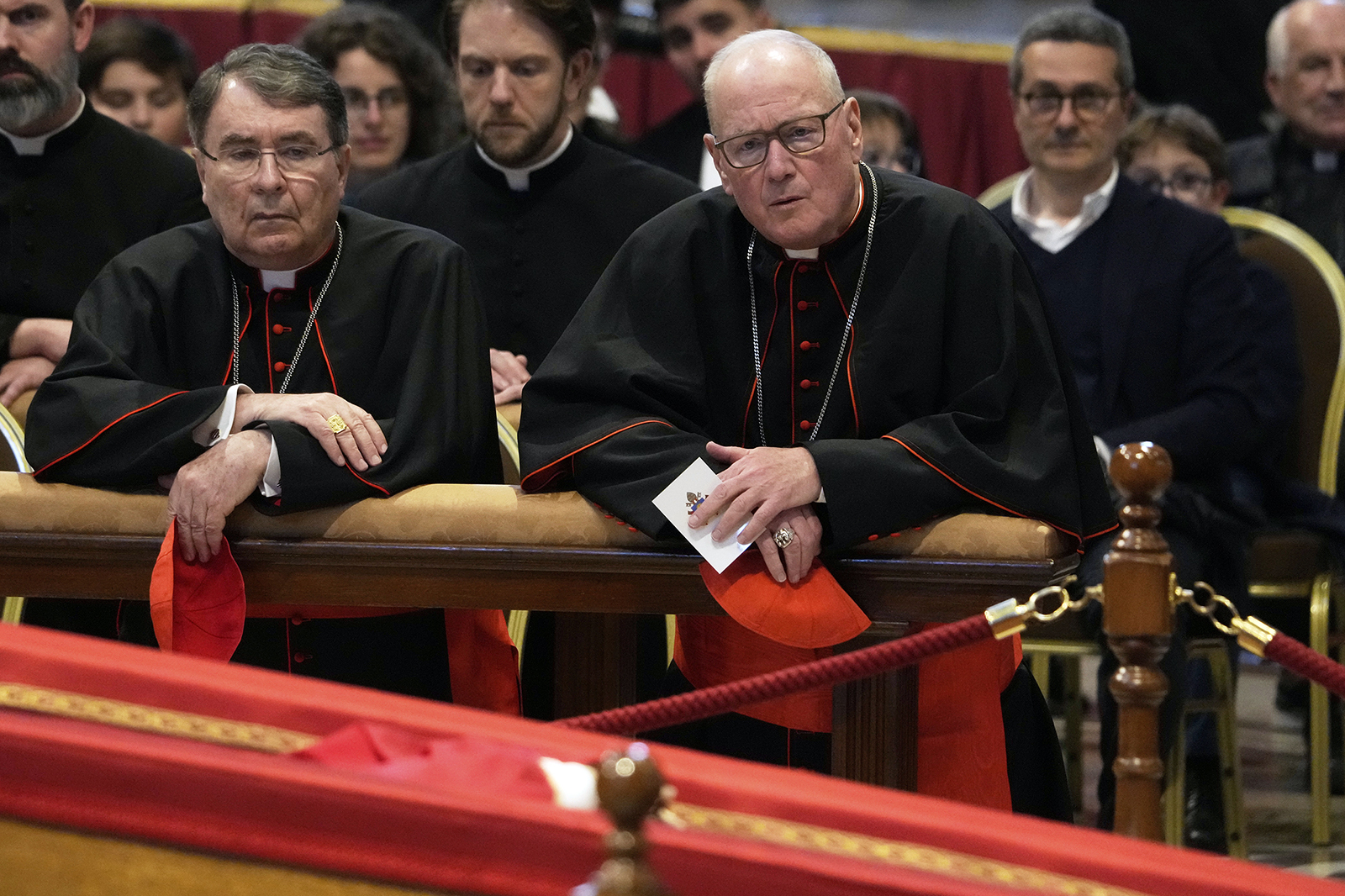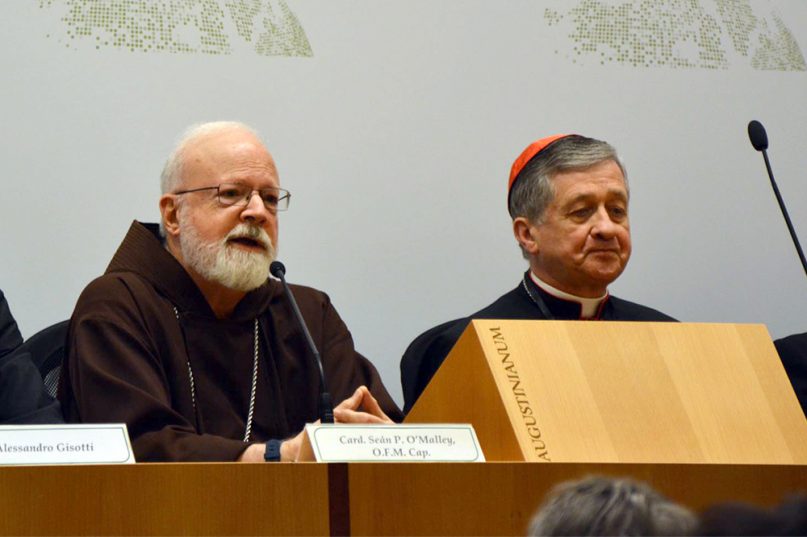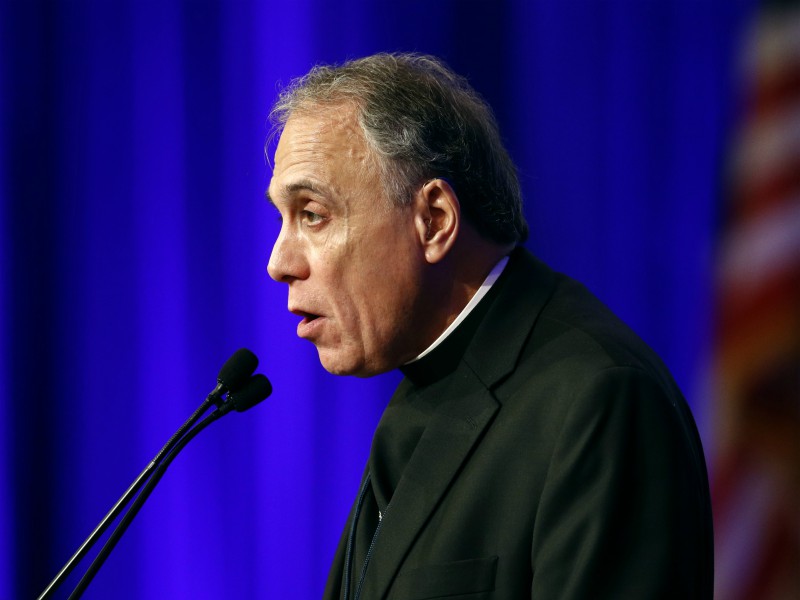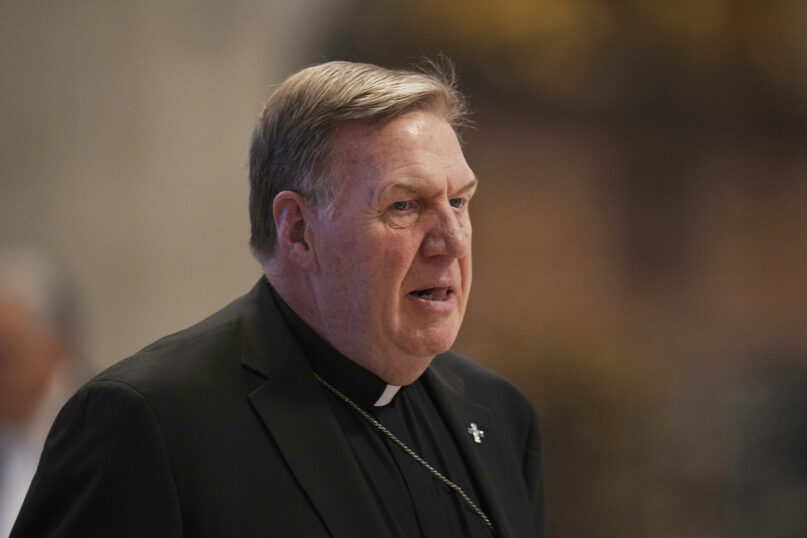
VATICAN CITY (RNS) — Representing a little over 4% of the globe’s Catholics but nearly 8% of those who will participate in the papal conclave, the 10 American cardinals in Rome this week already have outsized numerical influence in choosing the next pope. They boast deep, if painfully gained, experience in handling clergy sexual abuse, an issue that has bedeviled the church for decades, and are considered able financial administrators.
Not least, the U.S. contingent, who number 17 including the cardinals too old to vote, have the deepest pockets of any national church, which is the largest contributor by a wide margin to the pope’s charitable fund, called Peter’s Pence.
“While America may no longer be the superpower it was, U.S. Catholicism is still a superpower,” said Massimo Faggioli, a professor of theology at Villanova University and leading Vatican expert.
What the American cardinals don’t bring is unity. “ It’s impossible to view them as one single voting bloc,” said Dan Cosacchi, vice president for mission and ministry at the University of Scranton. While not neatly matching U.S. political ideology, the cardinals can be categorized as favoring “continuity with” or “rupture from” Pope Francis’ papacy.
Francis made six of the voting cardinals and offered them important positions in the Vatican bureaucracy known as the Curia. That makes them capable of articulating the late pope’s message and vision for the future of the church.
Among the most outspoken is Chicago Cardinal Blase Cupich, 76, a member of the Vatican’s department overseeing the appointment of bishops since 2016. He has used this position to guide his selections to important posts, sending two of his current or former auxiliary bishops to higher positions in the past four months alone, even as Francis gave him five more auxiliaries in December, an unusually high number.

Cardinal Sean Patrick O’Malley, left, speaks to media, flanked by Cardinal Blase J. Cupich, Chicago archbishop, right, during a four-day sex abuse summit called by Pope Francis, in Rome, on Feb. 22, 2019. (RNS photo/Jack Jenkins)
Two weeks later, Francis sent Cardinal Robert McElroy, 71, a close ally, from San Diego to Washington, where he has continued to echo the late pontiff’s concern for migrants and the environment and his openness to LGBTQ people.
McElroy’s predecessor in Washington, Cardinal Wilton Gregory, 77, is another Francis ally. The first African American cardinal to participate in a conclave, Gregory served as president of the U.S. Conference of Catholic Bishops in the early 2000s, fashioning the Charter for the Protection of Children and Young People, commonly known as the Dallas Charter, creating zero tolerance procedures for abuse and safeguarding practices to prevent abuse.
These cardinals’ pastoral approach appeals to Catholics who have fallen away from the church, said Cosacchi, especially their shift in tone on LGBTQ acceptance. A 2023 poll from the Public Religion Research Institute found that more than half of former Catholics cited negative teaching about gay and lesbian people in leaving the church.
The voting cardinals, however, also comprise some of the staunchest opponents of Francis’ style and vision. Cardinal Raymond Leo Burke, 76, has been an outspoken critic, especially concerning Francis’ overtures to LGBTQ+ Catholics and his cautious opening to divorced and or remarried couples to receive Communion.
Appointed by Pope Benedict XVI to the Vatican’s supreme court, the Apostolic Signatura, in 2008, Burke became patron of the Sovereign Military Order of Malta under Francis as well. But Burke’s grinding opposition to Francis eventually led the pope to strip him of his Vatican stipend and living quarters in 2023. The indignity has only bolstered his position as the de facto leader of conservative prelates likely to sway votes away from candidates who are in sync with Francis.

Cardinal Daniel DiNardo of the Archdiocese of Galveston-Houston delivers remarks on Nov. 13, 2017, at the U.S. Conference of Catholic Bishops’ annual fall meeting in Baltimore. DiNardo was USCCB president at the time. (AP Photo/Patrick Semansky)
Houston Cardinal Daniel DiNardo, 75, is also seen as conservative but has publicly emphasized his approval of Francis. As president of the U.S. bishops’ conference in 2016, DiNardo pushed back on the idea that his election was anti-Francis in an interview with Crux, saying, “If they want to construe this as somehow I’m not with Pope Francis, that’s crazy.”
Cardinal James Michael Harvey, 75, has held several important positions at the Vatican during the last three papacies and for two decades was head of the papal household before becoming archpriest of the Basilica of St. Paul Outside the Walls. Doctrinally conservative, he has an extensive knowledge of the church’s inner workings and is said to value discretion above all.
The issue all the American cardinals will likely speak strongly about is the financial and economic reform started by Benedict and continued by Francis. The last Vatican budget report, in 2022, showed losses averaging roughly $98 million per year, an indebted pension fund and declining donations.
Irish-born American Cardinal Kevin Farrell, 77, who was among the experts on the Vatican’s finances who briefed their fellow prelates on the budget on Wednesday (April 30), is also the papal camerlengo, the interim executive of the church and a key figure in the transition to a new pope. Since 2020, Farrell has been president of the Commission for Confidential Matters, which has the power to confine any legal, financial and economic matter to secrecy “for the greater good of the church.” In 2022 he became chair of the Pontifical Committee for Investments.
John Carr, a longtime lay department head for the U.S. bishops’ conference who admired Farrell’s work on Latino Catholic issues in the Archdiocese of Washington, said it was “stunning” to see Farrell “at the epicenter” of this crucial period for the church.

Cardinals attend a Mass presided over by Cardinal Pietro Parolin in St. Peter’s Square at the Vatican on the second of nine days of mourning for Pope Francis, on April 27, 2025. (AP Photo/Andreea Alexandru, File)
One nick in Farrell’s reputation is that he served closely in Washington with former Cardinal Theodore McCarrick, a known abuser, but all 10 U.S. cardinal-electors have faced some scrutiny for how they have handled sexual abuse cases. SNAP, the survivors’ advocacy group, has filed official reports making accusations of mishandling abuse for about nine of them, of varying severity, and has aired complaints with all 10.
Few believe that any of the red-hatted Americans will be elected pope, as cardinals traditionally want to keep the church separate from political and economic hegemons.
But Faggioli, pointing to the declining influence of the United States in the world, said, “An American pope is less impossible than one might think.”
While still a longshot, two U.S. cardinals are rumored to be papabili, or potential popes. Chicago-born Cardinal Robert Francis Prevost, 69, was appointed by Francis in 2023 to head the department overseeing bishops, making him a familiar figure among prelates. “He knows every bishop and cardinal personally like few others do,” Faggioli said.
A canon law expert and a polyglot who became the prior general of the Augustinian order in 2001, Prevost is viewed as “a moderate, balanced figure, known for solid judgment and a keen capacity to listen,” Vatican expert John Allen wrote on Crux.
What makes Prevost particularly appealing is his un-Americanness, as he spent his formative years in Rome and later in Peru, where he headed a Augustinian seminary. After returning to Chicago in 1999, and serving two terms as the head of the Augustinians, Prevost was sent back to Peru by Francis and finally to Rome.
But Prevost has a shaky background in handling sex abuses cases in his dioceses in Chicago and in Peru, raising questions about his ability to promote accountability as pope. His positions on outreach to LGBTQ Catholics and women’s ordination are hard to pinpoint, but he has been a faithful promoter of Francis’ documents and message.
Some news reports have placed Newark, New Jersey, Cardinal Joseph Tobin, 72, in line to become the next pope. Coming to Rome as a rising star in his religious order, the Redemptorists, Tobin lamented having to give up playing ice hockey after struggling to find a league in Rome.
In 2010 Benedict tapped him as secretary for the Vatican department overseeing religious orders, but as the pope cracked down on the increasingly independent Leadership Conference of Women Religious, which currently represents about two-thirds of U.S. Catholic sisters, Tobin objected, according to rumors, and was reassigned. Those who know him say that the cardinal, who has eight younger sisters, has a special regard for women, and he once claimed he wouldn’t oppose women as cardinals.

Cardinal Joseph William Tobin attends a Mass on the fifth of nine days of mourning for late Pope Francis, in St. Peter’s Basilica at the Vatican, April 30, 2025. (AP Photo/Alessandra Tarantino)
Tobin led the archdioceses of Indianapolis and then Newark and was elevated to cardinal by Francis in 2016. Like Francis, the speaker of five languages has long been outspoken in favor of immigrants. Recently, he hosted one of the first interfaith services in solidarity with immigrants a week ahead of the second Trump administration in a format that would become a trend for other bishops.
Tobin has also faced a Vos Estis report from SNAP about his handling in the Newark Archdiocese of the legacy of McCarrick’s abuse.
Also among the papally mentioned is Cardinal Timothy Dolan from New York, 75, but chiefly by the Mentioner-in-Chief, U.S. President Donald Trump, with whom Dolan has a chummy relationship. Dolan said a prayer at the president’s second inauguration and will be among the voting cardinals at the conclave.
But Trump’s casual endorsement of Dolan, a former president of the U.S. Conference of Catholic Bishops, may have hindered his chance of being a trusted voice in this conclave. “He has become very closely associated with Donald Trump and that is not going to help him be credible in the eyes of other cardinals,” Faggioli said.
A number of nonvoting cardinals from the U.S. regardless have a voice during the pre-conclave meetings at the Vatican. Chief among them is the Capuchin friar and Cardinal Sean Patrick O’Malley, 80, who is best known for tackling the aftermath of the sexual abuse and cover-up in the Archdiocese of Boston. He went on to occupy influential Vatican positions under Francis, starting with the Pontifical Commission for the Protection of Minors from 2014.
RELATED: Survivor advocacy group sounds alarm about several papabili records
Cardinal Donald Wuerl, 84, who followed McCarrick as archbishop of Washington, is viewed by his fellow cardinals as a churchman capable of overcoming ideological divides, though he too is tainted by accusations that he failed to manage McCarrick’s crimes. Cardinal Roger Mahony, 89, archbishop of Los Angeles from 1985 to 2011, was accused of moving abusive priests rather than reporting them to government authorities. His successor, Archbishop Jose H. Gomez, removed him from all of his responsibilities in the diocese in 2013.
Nonetheless, Mahony, a Francis ally in recent years, was allowed to vote in the 2013 conclave that elected Francis and was an official witness to the sealing of Francis’ coffin on April 25, causing uproar from advocates of clergy abuse survivors.
The remaining nonvoting cardinals are more conservative and bring an insider’s understanding of the church to the conclave. They include Cardinal Frederick O’Brien, 80, former archbishop of Baltimore and of the U.S. Military Services; Cardinal Adam Maida, 95, who was archbishop of Detroit and an experienced canon lawyer, and held several positions in the U.S. bishops’ conference; and Cardinal Justin Rigali, 90, former archbishop of St. Louis and later Philadelphia who was forced to resign after sex abuse scandals on his watch.
Cardinal James Stafford, 92, served as archbishop of Denver before becoming the head of the papal commission overseeing laity. A Catholic conservative when it comes to theological issues, he was a strong critic of the Obama administration, which he described in 2008 as “aggressive, disruptive and apocalyptic.”
RELATED: How a Russian Orthodox leader’s diplomacy with Rome became a casualty of Ukraine war
